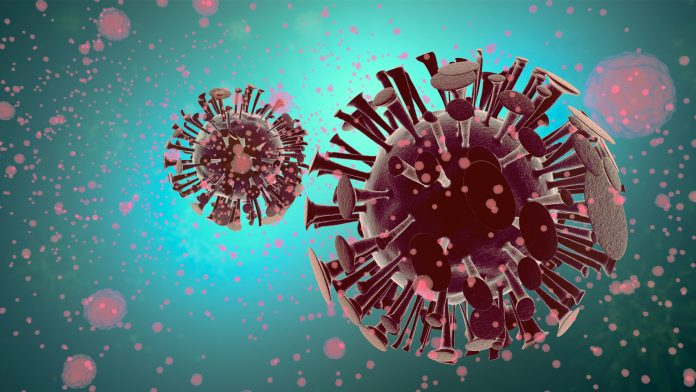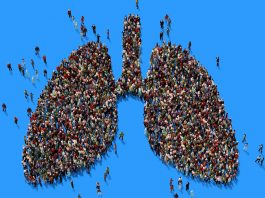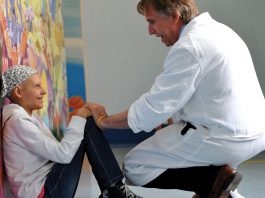Joan Seoane, Secretary General for the European Association for Cancer Research, speaks to The Innovation Platform about the importance of immunotherapy research.
The European Association for Cancer Research (EACR) is a global community of over 10,000 members in more than 100 countries who work and study in cancer research. The association was founded in 1968 by researchers who wanted to enable the communication among cancer researchers beyond borders.
Today, they help scientists to share and develop their research by organising high quality congresses and smaller focused conferences. The EACR also provide Fellowships to enable early career researchers to work and study in institutes in other countries, publish an online magazine and host a ‘Find a Collaboration’ tool allowing members researchers to collaborate on projects across the world. They also work to raise the profile of cancer research in Europe and make the case for sustained political and economic support.
The EACR are guided by a Board of eminent cancer researchers who set out the EACR’s vision and strategy and who are supported by the EACR staff and volunteer members. The Innovation Platform speaks to Joan Seoane, EACR Secretary General, about some of the latest developments in immunotherapy research.
What are some of the latest research studies surrounding immunotherapy?
During the last decade, cancer immunotherapies have shown a substantial amount of clinical activity for a subset of cancer patients. Immune checkpoints inhibitors, such as antibodies against CTLA-4 and PD-1/PD-L1, have shown clear clinical benefit for patients with some advanced cancers and in some cases, have gained FDA approval. Moreover, we have also observed a great success of autologous chimeric antigen receptor (CAR) T cells in leukaemia and lymphoma. However, despite these encouraging results, a large proportion of patients do not respond to current immunotherapies. Recently, little by little, we are uncovering the mechanisms of immune evasion by tumours and are beginning to identify biomarkers to predict whether an individual patient will be sensitive to immunotherapy.
How important is the development and research studies surrounding PD-1 and PD-L1 inhibitors? What more needs to be done around this research area?
When dealing with PD-1 and PD-L1 inhibitors, two main questions arise:
- How can we increase the percentage of patients that can benefit from these compounds?
- How can we a priori identify the patients that will respond to the treatment?
Research studies in these contexts are crucial to improve immunotherapies. Only the detailed biological understanding of the cancer immune response will allow us to answer these questions.
What would you say are some of the main limitations surrounding immunotherapy?
Several factors limit our understanding of the action mechanisms of immunotherapy. More basic research is required to fully understand the biology of the immune response. We need better experimental models to recapitulate the complexity of the human cancer, in this sense patient-derived models should be improved in order to provide more precise treatments. Continually, we need to better understand the mechanisms of resistance to treatment to come up with improved rational combinatory treatments. We should identify better biomarkers to select patients that will benefit from the treatment. Clinical trials need to be better designed to get as much information from the patient both in the case of successful responses but, also and maybe more importantly, in the case of failures. In addition to this, data and knowledge should be better shared. These are some of the things that can be improved and that will allow to deliver on the promise of immunotherapy.
As a whole, what would you say is the current state of cancer research within the EU? How can this be improved and what role do you hope to see the EACR play in this?
We are very pleased to see that Horizon Europe (the European Commission’s ambitious €100bn research and innovation programme to succeed Horizon 2020) has recognised the importance of cancer research by identifying Cancer as one of its five ‘missions’. Their funding will help important projects make lifesaving breakthroughs, whilst also reflecting the benefits of communication and collaboration across borders, for which we advocate strongly.
One of the core principles behind the EACR’s work is that “today’s science is tomorrow’s medicine”, a phrase which summarises the need for basic research. Basic research lays the foundations for new treatments and medicines but is often hidden, less acknowledged and well-understood by the public. The science behind the advances we are beginning to see needs just as much focus as the vital clinical and patient aspects of research. We aim to raise awareness of the importance of basic research and will collaborate with institutes, cancer organisations and other key stakeholders to advance this cause. We are an active partner in World Cancer Research Day, which shares exactly this aim.
Institució Catalana de Recerca i Estudis Avançats (ICREA)
Vall d Hebron Institute of Oncology (VHIO)
Vall d’Hebron University Hospital
Universitat Autònoma de Barcelona
Tweet @EACRnews
www.eacr.org
Please note, this article will also appear in the first edition of our new quarterly publication.









